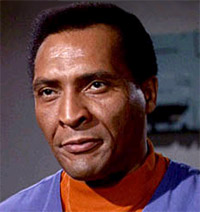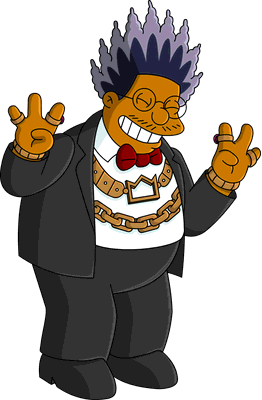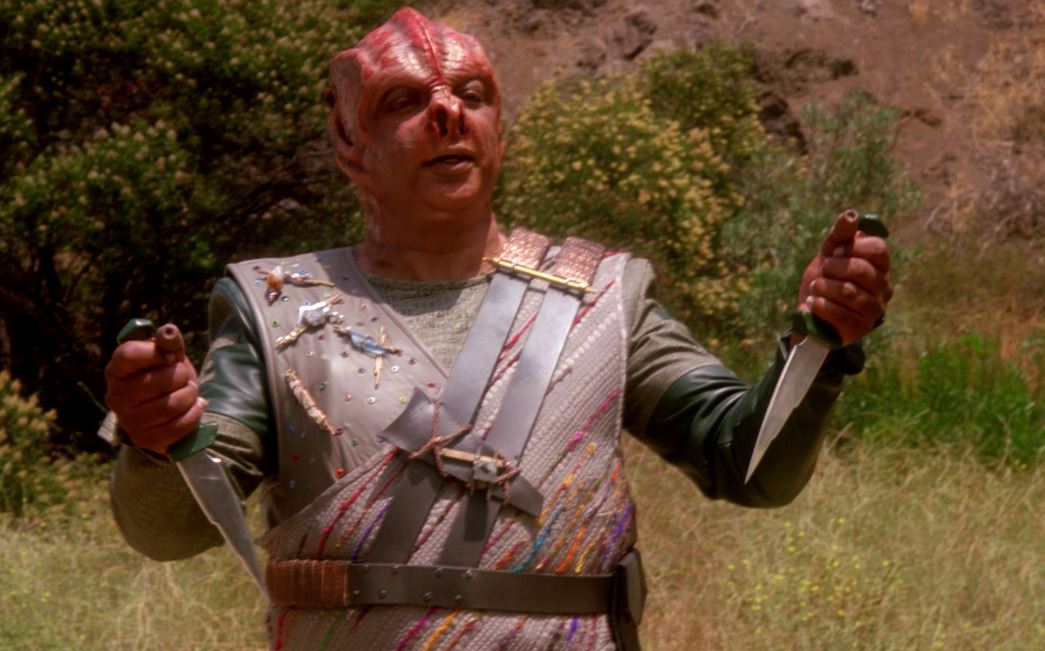Agree...although I thought there were some pretty good examples of this in S1 to be honest. I think that, unlike most of the Trek we have gotten in the past, though, it wasn't as cleanly spelled out in a speech at the end or a chuckle on the bridge before warping out of orbit. But, I believe it's there more than you give credit for.
I'm not saying it was entirely absent. I mean, the tardigrade arc pretty clearly was meant to harken back to Devil in the Dark. Burnham's backstory with Sarek from Lethe was interesting, and it fit thematically with the deeper understanding we got of Lorca (or rather, thought we got - since it was really his mask). But I felt like DIS's first season was a bit noncommittal. It would come close to saying something profound at times, then quickly back away to pay attention to what subtitled Klingons were muttering about or something.
Agree. I think the general feeling was that S1 was Burnham's arc, and a lot of the storytelling energy went into that. This is a great cast with a lot of chemistry. I think they would be well-served to leverage that.
Yes. I feel like the cast is one of the strengths of the series. No one really bores me as was the case on ENT or VOY, and they're all excellent actors - maybe not up there with the top actors in Trek history, but overall, probably the second-best cast in terms of acting talent.
Agree that there is room for improvement here. Honestly, though, this is characteristic of all Star Trek, particularly Berman-era Trek. That's not an excuse, but it is to say that perhaps the writers still had 700 hours of those voices ringing in their heads and had trouble breaking the mold. I do think that the series got better at this as it went along, though.
Not all Berman Trek was the same though. DS9 - which I know you also enjoyed - made a conscious effort to avoid technobabble, and as a result had the most naturalistic dialogue out of the Trek series.
It's also worth noting that the framing devices of Berman-era Trek - the common bridge scenes, along with the "ready room" conferences which began with TNG - helped make the exposition seem more naturalistic. People don't infodump on each other in casual conversation after hours, after all, but it's not uncommon to have presentations given in a work environment. DIS avoiding these situations meant the infodumps - where they happened, felt a lot weirder (for example, Burnham's terrible one explaining how Katras work while recovering in Sickbay.
In general though, Trek has up until Discovery been structured in an almost radio play format. I know film professors have demonstrated that you can listen to only the audio of a Star Trek episode and it generally works just as well, because of the convention that (for example) bridge officers actually say out loud what they are doing rather than just quietly doing their job when given an order. Trek really only departs from this "radio play" format when it plays around with a more visual genre, like horror or suspense, which requires a good deal of storytelling be told outside of dialogue.
I am concerned about this one. While I think S2 looks great, and has the potential to be a good improvement over an already good (IMO) S1...I'm concerned about the vast number of elements that are already known to be part of S2:
Spock
Pike
Number One
Discoprise
Red Angels
Anomolies
Tyler
L'rell
Moar Klingons
Emperor G
Section 31
Sarek
Saru's home planet
Talosians / Talos IV
I just hope they haven't bitten off more than they can chew...and there's an integrated, cohesive plan to have all this fit appropriately.
There's other stuff you forgot. Cornwell is coming back again (for what reason, I don't know - I think they destroyed her character last season). We're going to spend time bouncing around a ridiculously dense asteroid field, meet some black tar alien thing, and get introduced to Tig Notoro's character. I think the showrunners have promised a bit more fleshing out of characters like Detmer and Airiam - hopefully just giving them actual lines.
IMHO the late decision to add an episode to the season is a good thing, because it likely means they realized their ending was too complicated to try and wrap up in such an abrupt fashion as they attempted with Season 1. We will see I suppose.






